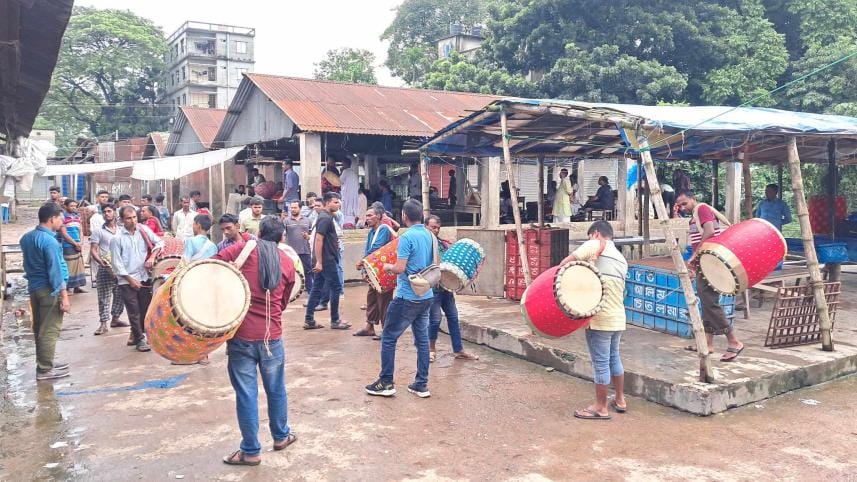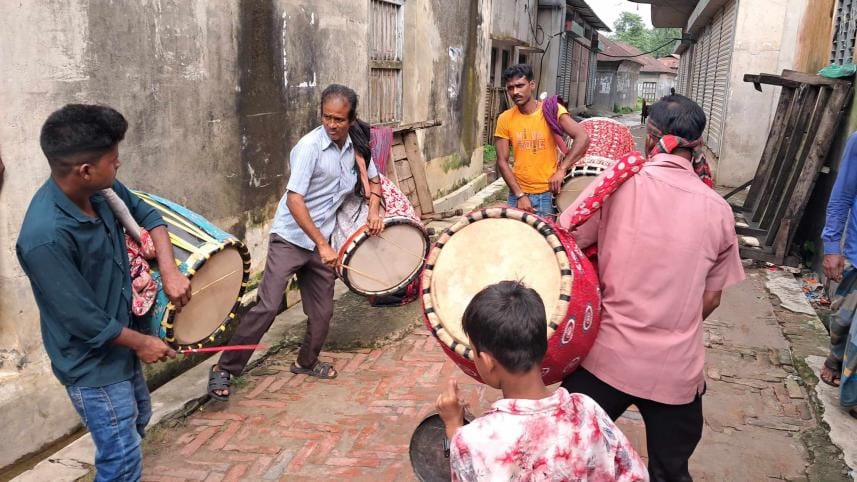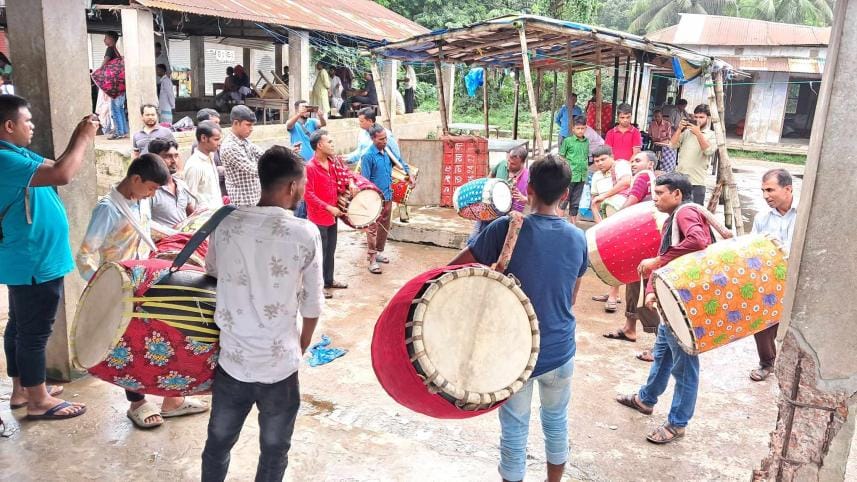Katiadi's Dhaker Haat

Every year before Durga Puja, under the autumn sky, the banks of the Brahmaputra river in Kishoreganj's Katiadi upazila come alive with the rhythmic sounds of dhak [large drums] and dhol [small drums].
Bands of drummers, their instruments slung across their shoulders, gather there from all over the region, playing their best tunes.
The dhak's beat mingles with the lighter rhythms of kasor, the enchanting notes of the sanai, and the melodies of flutes. Together, they create an electrifying atmosphere that draws crowds from every corner.

The scene is a joyous one -- hundreds of dhak players line the riverbank, each trying to outdo the other, hoping to catch the attention of Puja organisers who eagerly search for the perfect band to bring their Durga Puja celebrations to life.
People from different religions and walks of life join in, captivated by the music that knows no boundaries.

As the beats grow louder and more intense, Puja organisers move through the crowd, watching and listening closely. Contracts are drawn up, hands are shaken, and soon, the finest dhak players in the country secure their place to perform in specific Puja mandaps.
The annual three-day gathering is known as "Dhaker Haat".
This year, as always, the haat sat in the Jatraghat area, with the centuries-old ritual drawing drummers, artisans, and devotees.
"We've been coming to Dhaker Haat for years to find the perfect band for our Puja celebrations," said Anil Babu, a Puja organiser from Mymensingh, after signing a contract with a group of dhak players.
"The moment I heard the beats from Hari Das and his band, I knew they were the ones. Their energy, their rhythm -- it's exactly what we need to bring our Puja pandal to life," he added.
Locals say this tradition stretches back nearly 500 years, when Raja Naboranga Roy of Charipara used to host Durga Puja at his palace.
Legend has it that the Raja would personally select the best dhak players from across the region. Most of the selected bands were from Bikrampur, a place famous for its talented drummers.
"The journey to Katiadi is always an adventure," said Moloy Das, a dhak player from Nawabganj who has been a part of this tradition for the past few decades.
"Not only do we get to perform, but it's also an opportunity to meet fellow musicians, catch up with friends, and be part of something bigger than ourselves," he added.
For drummers like Haradhan Das, who travelled from Narayanganj, the Dhaker Haat is the highlight of the season. "We wait for this celebration every year. The excitement builds as Durga Puja draws closer. Katiadi is always our first stop -- it's where we get the best contracts," he said.
Jony Kumar Saha, secretary of Katiadi Municipality Puja Utjapon Parishad, said, "The Dhaker Haat is not just about business; it's about honouring an ancient tradition."
"We are committed to preserving this gathering and ensuring the safety of all the musicians who come to celebrate with us," he added.
Security was a key concern ahead of the Puja celebrations this year, and the situation is so far so good, said Abdullah Al Mamun, officer-in-charge of Katiadi Police Station.



 For all latest news, follow The Daily Star's Google News channel.
For all latest news, follow The Daily Star's Google News channel.
Comments